The seven-year-old war in the Arabian Peninsula between the Houthi-dominated government in Yemen’s Sana’a and the Saudi-led coalition opposed to the Houthis is escalating. It is in danger of dragging in more countries, including the United States.
The battle for control of Marib, the last city in northern Yemen outside the Houthis’ control, spurred the recent escalation. Last year, the Houthis seized parts of the neighboring province of Shabwa, to the south of Marib in what was formerly South Yemen. In turn, the United Arab Emirates sent in a militia called the Giants Brigade, mostly composed of southerners, which it finances to drive the Houthis back.
In response to this tactical setback, the Houthis fired missiles at Abu Dhabi in January. These missiles are home-assembled in Yemen with the technical assistance of Iran and Hezbollah. The Houthis have been firing missiles at targets in Saudi Arabia for years. The tempo has increased; to 33 in the first nine months of 2021 from 14 attacks in the first nine months of the previous year. The bulk of the target sites are in the Saudi provinces adjacent to Yemen but Riyadh has been hit multiple times.
The missile attacks on Abu Dhabi have been accompanied by drones. The drone attacks have been claimed by a pro-Iranian Iraqi militia which has also hit Riyadh in the past. One of the Houthi strikes came as Israeli President Isaac Herzog was visiting Abu Dhabi. The Houthis have long called for the destruction of Israel.
The attacks on Abu Dhabi prompted a massive Saudi-Emirati bombing attack on the Houthis’ home city of Sadaa in which scores of innocent civilians died. But the Saudis and Emiratis have been bombing Yemen for seven years without any diminishing in the Houthis’ military capabilities.
As I wrote in a recent blog for a Brookings briefing book on nonstate armed actors, the Houthis have effectively taken control of the vast bulk of northern Yemen. Eighty percent of Yemenis live in the area controlled by the Houthi-dominated government in Sana’a (a coalition of parties and individuals in which the Houthi party Ansar Allah is preeminent).
The UAE has hosted American military forces since 1990. American air defense batteries fired Patriot anti-ballistic missiles at the incoming Houthi missiles at least twice. Washington has ordered additional American aircraft to Al-Dhafra airbase near Abu Dhabi, which hosts 2,000 U.S. troops, and a port call in the Emirati capital by the American destroyer the USS Cole (a ship attacked by al-Qaida in Yemen’s port of Aden in 2000). The French, who have a deepening partnership with the UAE, including their own presence at Al-Dhafra, are also offering Abu Dhabi military support against the new missile threat.
There are also reports that the Emirates are considering purchasing the Iron Dome air defense system from Israel. Since the establishment of diplomatic ties between the UAE and Israel in the Trump administration, security ties between the two have progressed swiftly. Iron Dome was developed to address the missile threat posed to Israel by Hezbollah and Hamas.
There are several contingencies that could make this dangerous situation worse. So far the missile attacks have produced few casualties in the UAE. What if missile strikes creates a mass casualty event at Abu Dhabi airport or a shopping mall? What if an American soldier is killed? Or an Israeli visiting the city? Either of these or other scenarios could come without further warning. Expanding the war to include the direct participation of American, French, or Israeli combat forces would be a bad mistake by those states, with unpredictable consequences.
Perhaps the Emiratis will conclude that the intervention in Marib is not worth the downsides of missile attacks that threaten the country’s lucrative tourism industry and discourage foreign investment. If the Houthis see the Emirates is pulling back, perhaps they will refrain from further strikes. But there is no guarantee.
The better scenario is to deescalate the war. In my previous post I suggested that Washington take the lead in diplomacy by securing a new United Nations Security Council resolution to halt all foreign interference in Yemen. The existing resolution is set to expire later this month, so this is a particularly auspicious moment to secure a new more balanced resolution. A year ago, President Joe Biden promised to make ending the war in Yemen a national priority. It’s time to make that promise a reality before it is too late.
The Brookings Institution is committed to quality, independence, and impact.
We are supported by a diverse array of funders. In line with our values and policies, each Brookings publication represents the sole views of its author(s).

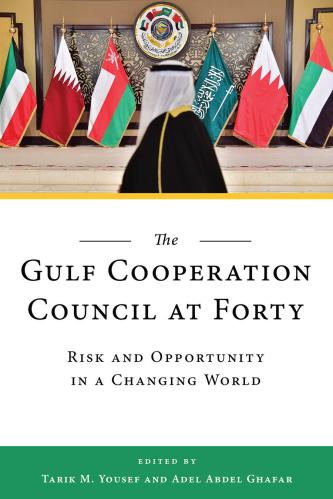
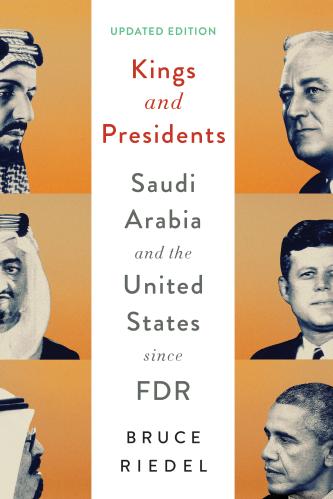
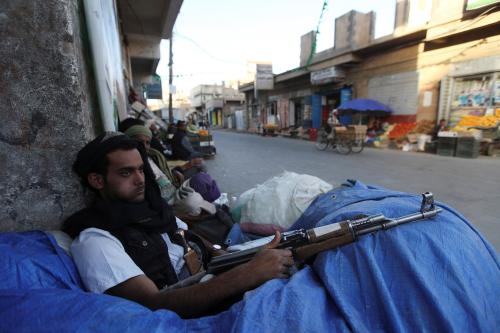
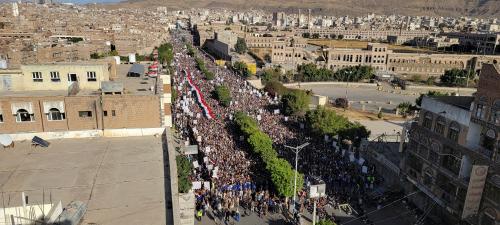
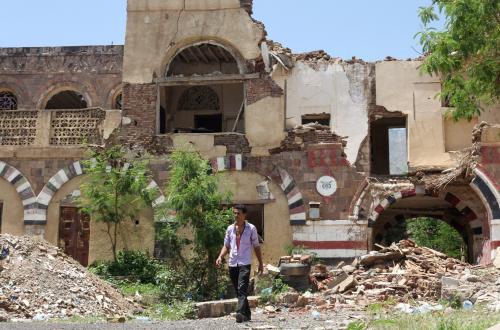

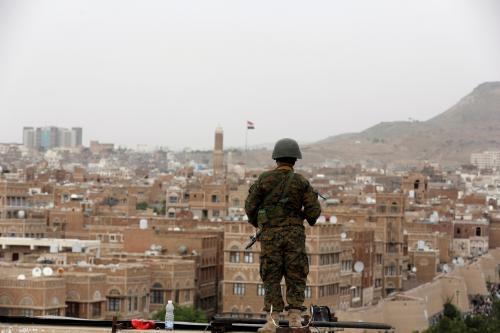
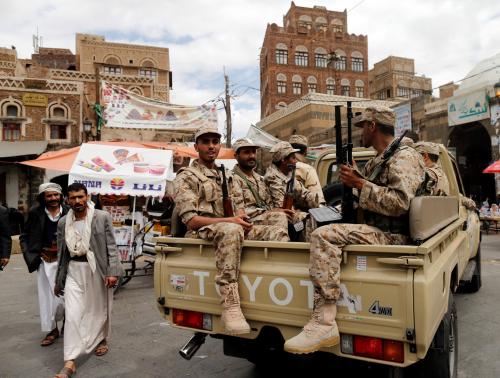

Commentary
Yemen war spreads to the UAE
February 10, 2022